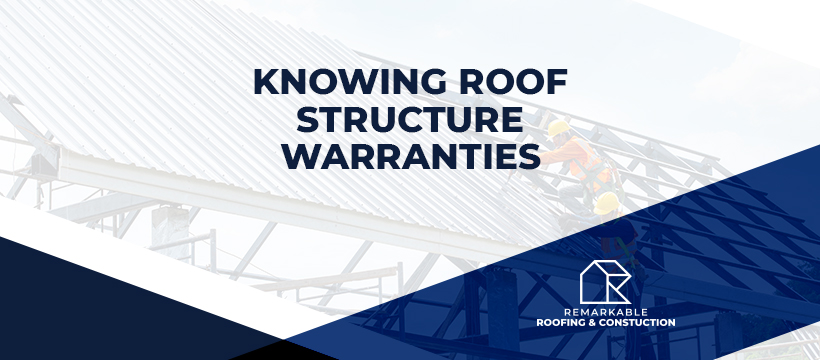Read about the differences between workmanship warranties and standard and extended roof structure warranties. Having new roofing installed is a considerable expense, and it’s very easy to get swept up looking at the different grades of roof shingles and choosing by far the most eye-catching profile and color for your home. Nevertheless, making sure you may have sufficient warranty protection is another concern. Roof covering guarantees can feel overwhelmingly complicated, helping to make comprehending your coverage alternatives more crucial so that you can make an educated decision relating to your roof structure materials and who installs it.
Understanding the Basics of Roof covering Warranties
Although it may seem as though there’s a wide array of warranties offered on the roof structure, you can find just three principal types:
- The standard manufacturer’s warranty that handles the items you purchase
- A workmanship warranty out of your licensed contractor that covers the installation
- An extended manufacturer’s warranty that covers licensed contractor workmanship along with enhanced coverage for that merchandise
Here, we will take a good look at each kind’s coverage and describe precisely what it means in functional conditions.
Standard Manufacturers’ Warranties
Most roof structure shingles include a fundamentally limited life-time warranty, which is the industry standard. In most cases, a lifetime warranty means you’re protected so long as you very own your home. The standard of protection you obtain depends upon the concept of “limited,” and this can vary depending upon the manufacturer:
Most manufacturer warranties strictly cover the expense of faulty materials, so you’re liable for any labor expenses to eliminate and dump defective shingles and set up the replacements.
Some manufacturers cover the expense of changing malfunctioning shingles for the initial few years then provide prorated coverage from that time on. If any shingles are found to get malfunctioning throughout the first period, the manufacturer will give you replacement shingles free of charge. This first coverage includes labor costs for installing the replacement shingles but doesn’t pay for tear-off and removal from the faulty shingles. If a failure occurs throughout the prorated period, you’ll receive merely a portion of the price or possibly a lesser amount of new shingles.
Industry-wide, these standard manufacturer warranties only supply coverage against factory defects: they don’t cover shingles that prematurely break because mistakes have been made during installment or complications with every other component your roof contractor installed, for example, ice and water shield, underlayment, flashing, or airflow items. Based on the manufacturer of such other components, they can be protected by individual warranties against defects, too.
Contractor Workmanship Warranties
The licensed contractor who installs your roof structure plays a vital role in their performance and longevity. Trustworthy, skilled roofing companies stand behind each installment job with a workmanship warranty. The length of this particular guarantee can vary a whole lot depending upon the licensed contractor. However, many offer you lifetime coverage. While a prolonged coverage period is way better, an excellent workmanship warranty should shield you against material breakdowns that occur because of personnel faults or improper installment tactics, no matter the coverage term.
Service provider workmanship warranties typically deal with the expense of labor and any components needed to make needed maintenance. Many also include any associated problems done to the home’s interior and your furnishings and personal effects.
Professional contractor warranties typically exclude problems that aren’t related to their installment workmanship, for example:
- Hurricane, great wind, and impact damage
- Water damage and mold on account of ice dams
- Damages in case the roofing was altered after installment
- The harm brought on by foot traffic
- Water leaks brought on by falling shrub limbs or wind-driven debris
Aspects like a contractor’s period of time in operation, their reputation of doing a high-quality job, and persistence for client satisfaction should trump any warranty they promise to offer you, so be sure to vet anybody you’re contemplating using the services thoroughly.
Extended Manufacturer Warranties = Comprehensive Coverage
Major manufacturers comprehend the direct link between installment high quality and how properly their roof structure items carry out long term. To aid homeowners in getting enduring worth and reassurance, they have optionally available extended warranty coverage on new rooftops installed by approved contractors accredited to set up the roof structure system according to the manufacturer’s installment demands.
Most extended warranties are accessible for an additional price and need you to have a whole roofing system installed, which usually involves specific coordinating parts, for example:
- Ice and water barriers
- Underlayment
- Hip and ridge cap shingles
- Soffit and ridge vents
- Starter and field shingles
Probably the most extensive extended warranties made available from trustworthy manufacturers supply a selection of advantages, for example:
- Insurance coverage for all roofing system components: Excluding flashing, wood decking, and fasteners
- Lengthy, non-prorated, or constant, insurance for malfunctioning components: Typically involves labor costs for maintenance or replacements and is extendable for approximately 50 years
- Workmanship insurance against installment errors from the roofing system: Term may be a life-time with prorating beginning after having specific years and involves labor, tear-off, and removal costs
Don’t Neglect Warranty Registration
Once you’ve selected a brand of roof structure plus an installment licensed contractor and determined that an extended warranty is your best option, be sure to look into the manufacturer’s demands for signing up your warranty. If the authorized licensed contractor manages to install your roofing, they might have to register its warranty with all the manufacturers in a specific period of time. Double-checking the demands are already satisfied can help you stay away from any headaches about non-registration if you must file a warranty claim in the future.
To learn more about roof structure warranties or how to register your warranty, contact us for more information and avail our services now!







